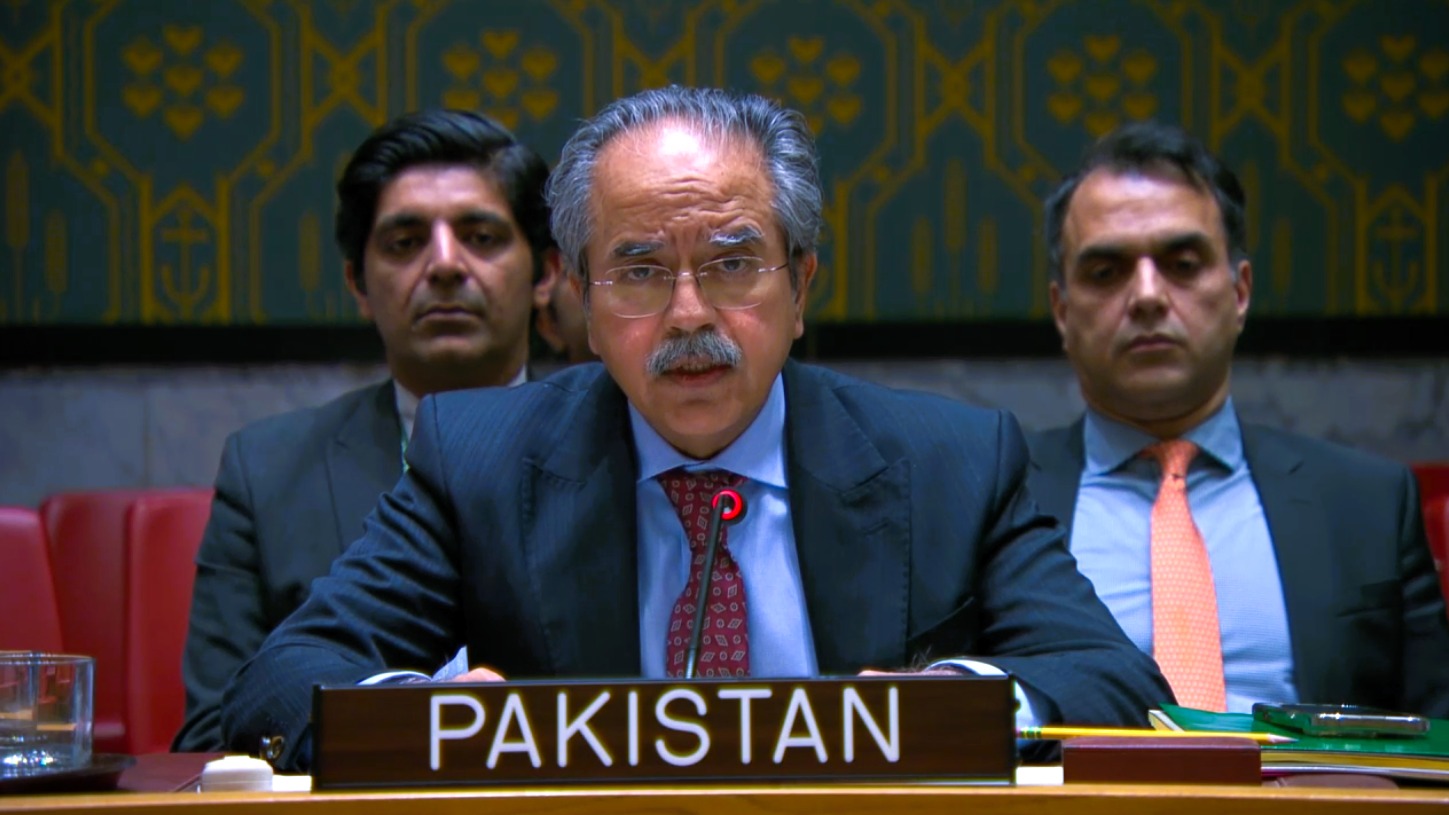
United Nations, November 6, 2025(Kamran Raja): Pakistan sounded the alarm at the UN Security Council over the deliberate weaponization of shared natural resources, condemning India’s unilateral suspension of the Indus Water Treaty – a cornerstone of transboundary cooperation for more than six decades – as a violation of treaty obligations and fundamental principles of international legality. In a statement in the UN Security Council on the Environmental Impact of Armed Conflict and Climate-Driven Security Risks, Ambassador Asim Iftikhar Ahmad, Permanent Representative of Pakistan to the UN, decried India’s egregious dismantling of a mechanism that safeguarded equitable water distribution, exposing millions to heightened climate vulnerability. He said that disrupting the Treaty, long hailed as a model of resilience even amid conflict, imperils regional stability, ecological balance, and weakens global confidence in the sanctity of international agreements. “This should be of grave concern for every member of this Council and for the international community as a whole,” he warned.
The Ambassador reaffirmed Pakistan’s position and recalled that the Court of Arbitration’s 2025 award has upheld the continuing validity of the Treaty and its dispute-resolution mechanisms. He urged “an early return to compliance and normal functioning through the established channels.” Turning to the broader agenda, Ambassador Asim highlighted the structural nexus between environment and security and advocated a paradigm shift toward preventive and sustainable peacebuilding. He urged concerted international measures to integrate environmental considerations into conflict prevention, peacekeeping, and post-conflict recovery. He cited Pakistan’s tangible contributions, noting how its troops in South Sudan and the CAR have pioneered eco-responsive initiatives, helping to preserve livelihoods and mitigate climate-related insecurity. Ambassador Asim stressed that fragmented international efforts will not suffice to confront the scale of environmental degradation, calling for a coherent UN system through closer coordination among Country Teams, peace operations, and regional and financial institutions to deliver sustainable environmental recovery. He emphasized the urgency of equitable climate and biodiversity financing, stressing that COP-30 in Belem presents a critical opportunity to operationalize the Loss and Damage Fund and chart a credible roadmap for global climate finance.
Concluding the statement, the Pakistan UN Ambassador warned that environmental degradation in conflict is not just a collateral damage but also a catalyst for instability. He reaffirmed Pakistan’s determination to advance collective action for ecological restoration, strengthen compliance with international law, and transform shared natural resources into instruments of cooperation rather than vectors of division.